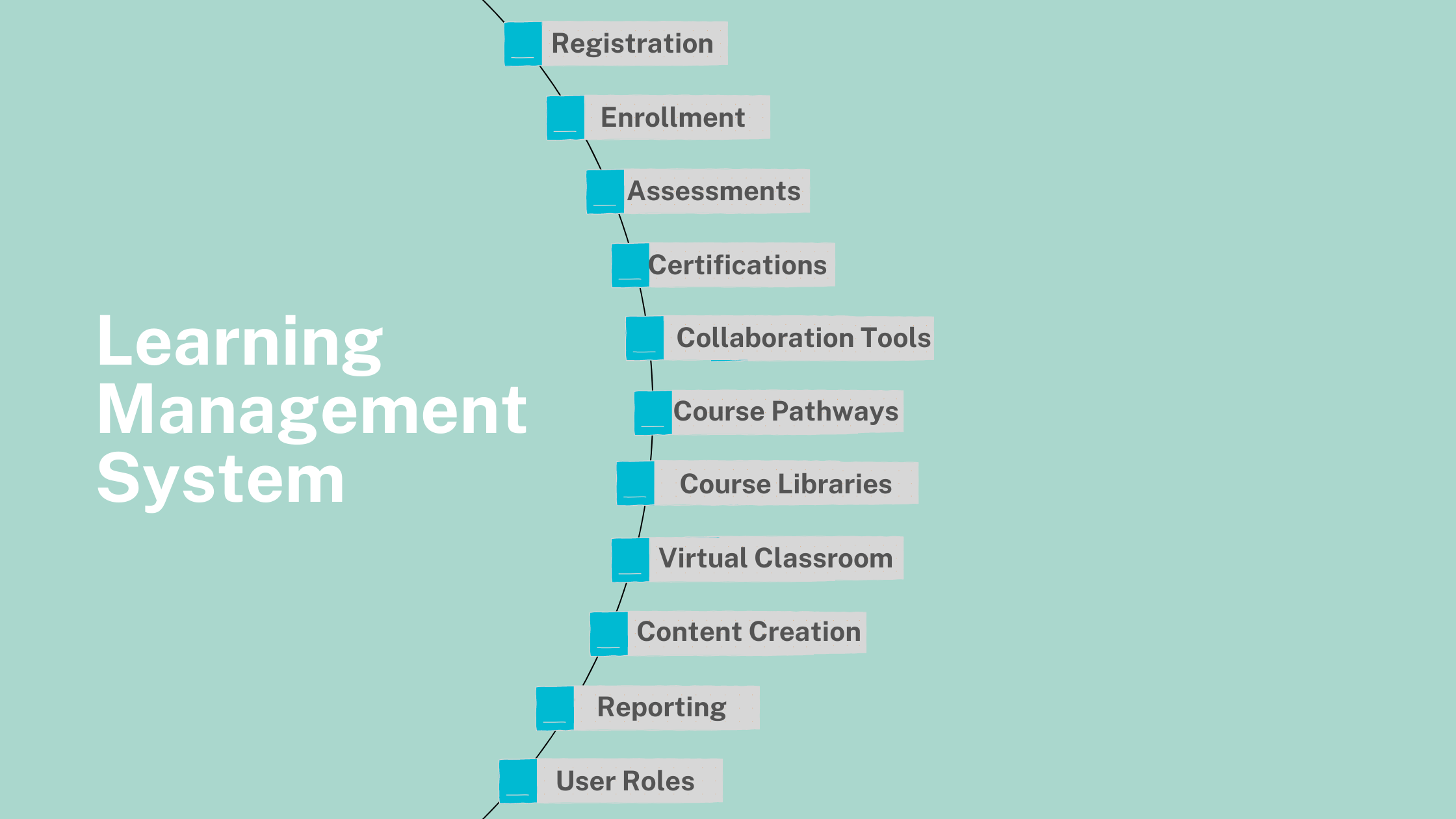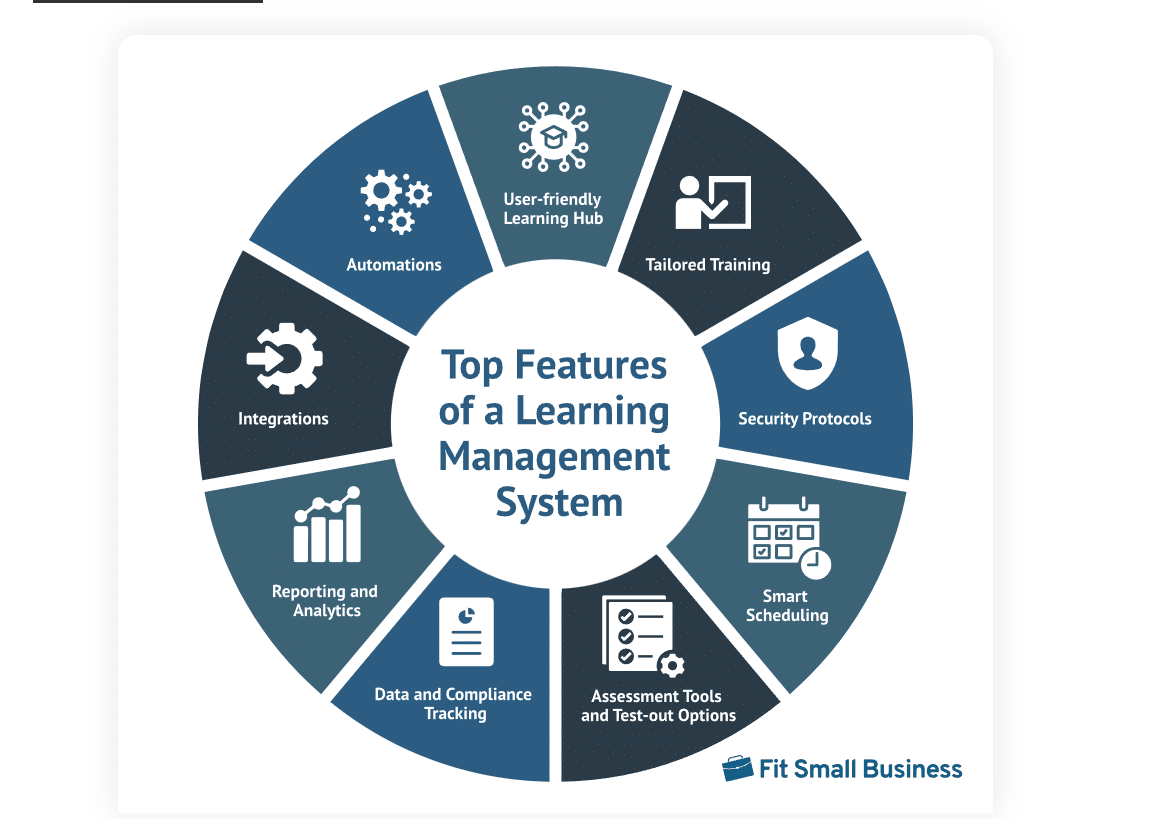Maximize Discovering Performance With a Powerful Understanding Administration System
In today's hectic academic landscape, the value of a robust Knowing Administration System (LMS) can not be overemphasized. By systematizing resources and employing innovative analytics, an efficient LMS can customize finding out experiences to fulfill diverse needs, facilitating self-paced involvement and cultivating partnership. In addition, the integration of evaluation tools ensures that students can track their progression, improving both retention and outcomes. The true capacity of an LMS extends beyond these features; it also opens the door to ingenious understanding techniques that might redefine exactly how we come close to education and learning in the future. What lies ahead in this evolution?
Comprehending Learning Management Solution
Knowing Administration Solution (LMS) are increasingly used in academic and corporate environments to streamline the delivery of web content and track student development. These platforms serve as centralized repositories for instructional resources, allowing fitness instructors and trainers to create, take care of, and disperse numerous kinds of finding out materials, consisting of videos, analyses, and quizzes. By leveraging innovation, LMSs facilitate a more reliable understanding experience, suiting diverse understanding styles and schedules.
The surge of LMSs can be credited to the growing demand for adaptable and scalable knowing solutions. Organizations and universities face consistent demands to boost training effectiveness while taking care of time and resource constraints. LMSs address these difficulties by allowing asynchronous discovering, where students can access material at their comfort, thus advertising self-paced education.
Furthermore, LMSs give important analytics and reporting capabilities, enabling managers and instructors to monitor learner interaction and efficiency. This data-driven approach supports constant renovation in educational methods and content shipment. In general, recognizing the duty of LMSs in modern education and training is crucial for stakeholders intending to boost finding out results and promote a society of continual development.

Key Attributes of an Effective LMS
An efficient Understanding Administration System (LMS) must include a variety of crucial features to satisfy the varied demands of students and educators alike. Easy to use navigating is important, allowing customers to conveniently access courses, resources, and support. Additionally, adjustable dashboards allow both trainers and learners to tailor their experience, enhancing interaction and functionality.
An additional critical feature is robust evaluation and reporting capabilities, enabling educators to track student progression, efficiency metrics, and completion prices. This data-driven technique helps with notified decision-making regarding instructional strategies. Furthermore, an effective LMS should support various content formats, consisting of videos, quizzes, and interactive components, accommodating various learning designs.
Integration with third-party tools and platforms is likewise important, allowing seamless connection with various other educational modern technologies and sources. Additionally, mobile availability ensures that learners can involve with material anytime, anywhere, promoting flexibility and convenience.
Lastly, efficient communication tools, such as conversation forums and messaging systems, foster cooperation and interaction amongst instructors and students (Canvas Singapore). By incorporating these key attributes, an LMS can considerably boost the understanding experience, ultimately bring about improved educational outcomes
Benefits of Making Use Of an LMS
The execution of an Understanding Management System (LMS) offers countless advantages that can significantly improve the instructional experience for both trainers and students. One of the key benefits is the capability to provide content in a centralized and well organized fashion, enabling very easy access for students anytime and anywhere. This adaptability fits varied knowing designs and speeds, promoting an extra individualized educational trip.
Moreover, an LMS facilitates streamlined interaction between pupils and teachers, enhancing interaction via conversation forums, messaging, and responses devices. The ability to track development and efficiency permits educators to make data-driven decisions, making sure that learning objectives are satisfied successfully.
Furthermore, the integration of multimedia sources, such as video clips and interactive tests, enhances the finding out experience, accommodating various choices and boosting retention. LMS Singapore. Cost-effectiveness is another substantial benefit, as an LMS lowers the requirement for physical products and decreases traveling expenditures connected with conventional training
Carrying Out an LMS Efficiently
Effective implementation of a Knowing Administration System (LMS) rests on mindful preparation and execution, making certain that both instructors and learners are equipped to maximize its benefits. The initial action involves examining the particular demands of the institution, including comprehending the goals, target market, and wanted outcomes. This evaluation must lead the selection of an LMS that aligns with these objectives.

Moreover, incorporating the LMS with existing systems, such as trainee info systems or material repositories, cultivates a smooth customer experience. Routine assessment and responses collection from individuals can assist determine locations for renovation and boost overall complete satisfaction.
Future Patterns in Learning Administration
As instructional landscapes progress, find this the future of Understanding Management Solution (LMS) is poised to embrace innovative modern technologies and instructional strategies. One of one of the most considerable trends is the combination of man-made knowledge (AI) and equipment understanding, which will certainly personalize the understanding experience by examining specific learner information to suggest customized resources and knowing pathways. This personalization boosts involvement and retention.
In addition, the surge of microlearning-- brief, focused sectors of knowing-- will be assisted in by LMS systems, straightening with the busy nature of contemporary life. Mobile-first layouts will even more enhance accessibility, permitting students to engage with content anytime and anywhere.
One more essential pattern is the consolidation of immersive innovations like digital reality (VR) and boosted reality (AR), which will certainly offer experiential understanding opportunities that were previously unattainable. These modern technologies can replicate real-world circumstances, cultivating much deeper understanding our website and ability acquisition.
Verdict
In final thought, an effective Knowing Management System (LMS) offers as an important tool for improving educational experiences. By systematizing resources, suiting diverse learning styles, and integrating evaluation devices, an LMS advertises self-paced learning and progress monitoring.
By leveraging technology, LMSs help with an extra efficient understanding experience, suiting diverse discovering styles and routines.
An effective Learning Administration System (LMS) should integrate a range of essential features to satisfy the varied demands of students and teachers alike.The execution of a Learning Administration System (LMS) supplies numerous benefits that can substantially improve the instructional experience for both learners and trainers. One of the most considerable trends is the integration of synthetic knowledge (AI) and equipment learning, which will certainly individualize the discovering experience by evaluating specific student data to recommend tailored sources and learning paths. By systematizing resources, accommodating varied knowing designs, and incorporating assessment tools, an LMS advertises self-paced learning and progress monitoring.